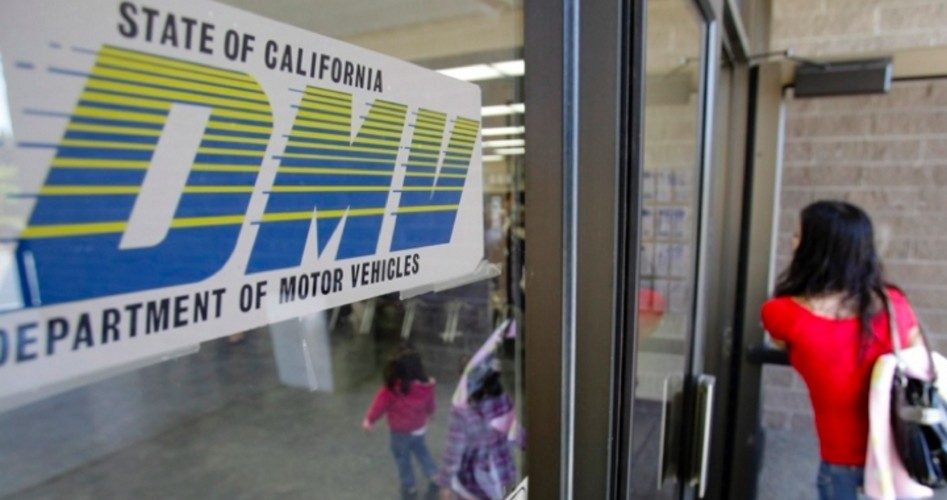
A report released by the non-profit Pew Charitable Trust on August 18 indicated that as of this summer, 10 states and the District of Columbia issue driver’s licenses to illegal aliens, and nearly 37 percent of these illegals live in a jurisdiction where they may obtain a license. The states are California, Colorado, Connecticut, Illinois, Maryland, Nevada, New Mexico, Utah, Vermont, and Washington.
While acknowledging that the issuing of driver’s licenses is a state function, the report notes certain federal intrusions into that area:
States consider legislation regarding these immigrants’ access to driver’s licenses in the context of the federal REAL ID Act, the 2005 law that created national standards for state driver’s licenses that can be used for federal identification. This law expressly authorizes states to provide licenses to unauthorized immigrants, but only if the licenses are distinct from regular ones in specific ways. State decisions also are likely to be affected by the federal executive actions announced in November 2014 that, if fully implemented, could allow millions of unauthorized immigrants who meet certain conditions to acquire the documents needed to apply for regular driver’s licenses under existing state laws.
The report notes that six of the states (California, Connecticut, Maryland, Nevada, Utah, and Vermont) and the District of Columbia have created alternative licenses for illegal aliens that are different in appearance from the standard licenses. The most common distinction is wording stating that the licenses are not an acceptable form of identification, particularly for federal purposes.
As for which forms of identification applicants must present, the report notes that the documents typically accepted as proof of age and identity by most applicants who are here legally, such as U.S. birth certificates or U.S. passports, are not available to illegal aliens. Therefore, consular identification cards, issued to foreign nationals by the embassy or consulate of their country of origin, are a common substitute, and are accepted by all 11 jurisdictions issuing licenses to illegal aliens.
Because these licenses require procedures that are not standard, including issuing special licenses and providing translators for applicants who do not speak English, state motor vehicle offices have found it necessary to hire additional staff. Pew notes:
The number of potential applicants affects staffing and facility needs, license processing and issuance, and expected costs and revenue. The cost of new personnel was the largest anticipated expense.
The report found that California, Illinois, Connecticut, Maryland, Colorado, Nevada, and the District of Columbia created an additional 1,039 positions because of the policy.
The report continued:
California’s fiscal summary estimated costs of approximately $140 million to $220 million and application fee revenue of approximately $50 million over three years. The state’s 2014-15 budget allocated $67.4 million to issue licenses to unauthorized immigrants and included a mechanism for increasing funding if the number of applicants proved unexpectedly high.
Considering California’s budget woes in recent years, resulting in a stagnant economy and the exodus of some corporations, taking jobs with them, it is difficult to understand how the state government’s officials can justify this policy.
The cost of providing driver’s licenses to illegal aliens is one more example of the overall cost of illegal immigration, which is determined mostly by federal policies. Some states, however, not content to suffer from federal policies alone, must add to their residents’ burden by catering to illegal aliens at the state level as well.
Photo: AP Images
Related articles:


